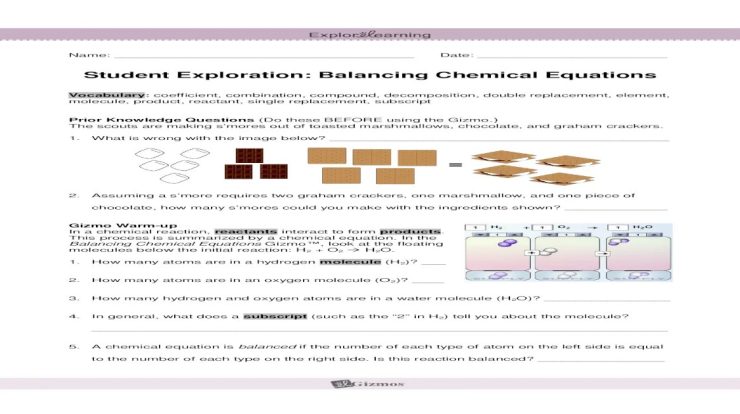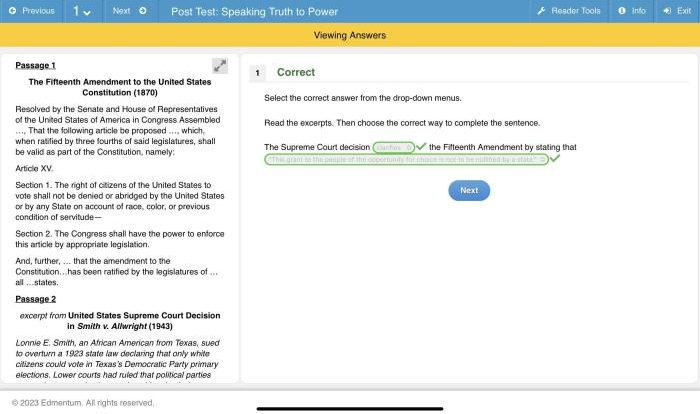Critical thinking reason and evidence – d265 – Critical Thinking: Reasoning and Evidence – D265 introduces the fundamental principles of critical thinking, emphasizing its significance in reasoning and evidence evaluation. By understanding the characteristics, key elements, and applications of critical thinking, individuals can develop a systematic approach to analyzing information, evaluating arguments, and making informed decisions.
This comprehensive guide delves into the role of reasoning in critical thinking, exploring different types of reasoning used in evaluating evidence. It highlights the importance of evidence in supporting and evaluating arguments, providing practical guidance on evaluating the credibility and reliability of sources.
Defining Critical Thinking
Critical thinking is a higher-order cognitive skill that involves the analysis, interpretation, evaluation, and inference of information in order to form sound judgments. It is essential for reasoning and evidence-based decision-making.
Key elements of critical thinking include:
- Analysis:Breaking down information into its component parts to understand its structure and meaning.
- Interpretation:Making sense of information by drawing inferences and conclusions.
- Evaluation:Assessing the credibility, relevance, and validity of information.
- Inference:Drawing logical conclusions based on evidence.
Reasoning and Evidence, Critical thinking reason and evidence – d265
Reasoning is the process of using evidence to support arguments and conclusions. Critical thinking requires the ability to use inductive and deductive reasoning.
- Inductive reasoning:Drawing general conclusions from specific observations.
- Deductive reasoning:Drawing specific conclusions from general premises.
Evidence plays a crucial role in supporting and evaluating arguments. It can take various forms, such as data, observations, testimony, and documents.
Evaluating Sources
Evaluating the credibility and reliability of sources is essential for critical thinking. Factors to consider include:
- Author’s expertise and reputation
- Publication date and currency of information
- Bias and potential conflicts of interest
- Methodological rigor and transparency
Bias and Assumptions
Bias refers to preconceived notions or prejudices that can influence our thinking. Common types of bias include:
- Confirmation bias:Seeking information that confirms existing beliefs.
- Availability bias:Relying on information that is easily accessible.
- Anchoring bias:Sticking to initial beliefs even when presented with new evidence.
Recognizing and mitigating bias is crucial for critical thinking.
Fallacies and Logical Errors
Fallacies are errors in reasoning that can lead to flawed conclusions. Common fallacies include:
- Ad hominem:Attacking the person making the argument instead of the argument itself.
- Straw man:Misrepresenting an argument to make it easier to attack.
- Begging the question:Assuming the conclusion in the premise of an argument.
Identifying and avoiding fallacies is essential for critical thinking.
Applications of Critical Thinking
Critical thinking skills are applicable in various fields and disciplines, including:
- Science:Evaluating scientific evidence and drawing conclusions.
- Law:Analyzing legal arguments and evidence.
- Business:Making informed decisions based on data and analysis.
- Everyday life:Navigating complex information and making personal choices.
Critical thinking is a lifelong skill that empowers individuals to make informed decisions, solve problems, and contribute to society.
Questions and Answers: Critical Thinking Reason And Evidence – D265
What is the significance of critical thinking in everyday life?
Critical thinking is essential for making informed decisions, solving problems, and evaluating information in various aspects of life, including personal, professional, and social contexts.
How can I improve my critical thinking skills?
Engaging in regular practice, actively seeking diverse perspectives, questioning assumptions, and developing a strong foundation in logic and reasoning can help improve critical thinking skills.
What are common biases that can hinder critical thinking?
Confirmation bias, availability bias, and groupthink are among the common biases that can influence our thinking and decision-making, leading to flawed conclusions.


